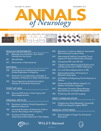 Duchenne and Becker muscular dystrophy (DBMD) are allelic disorders caused by mutations in dystrophin. Patients with DBMB lack neuronal nitric oxide synthase (nNOS), which mediates physiological sympatholysis, thus ensuring adequate blood supply to working muscle. In mice lacking dystrophin, restoration of nNOS effects by a phosphodiesterase 5 (PDE5) inhibitor (sildenafil), improves skeletal and cardiac muscle performance. Sildenafil also improves blood flow in patients with DBMD. Two studies have evaluated the effects of sildenafil on skeletal ad cardiac muscle in DBMD. In the first study that had a randomised, double-blind, placebo-controlled crossover design, the authors hypothesized that sildenafil would improve blood flow, maximal work capacity and heart function in patients with DBMD. Brachial artery blood flow was assessed during maximal handgrip exercise, six minutes walk test, maximal oxidative capacity, life quality, and cardiac function was evaluated by MRI at rest and during maximal handgrip exercise. Muscle nNOS and PDE5 were tested with western blotting in 5 patients. Sixteen patients completed all skeletal muscle evaluations and 13 the cardiac MRI investigations. Sildenafil had no effect on any of the outcome parameters. No serious adverse effects were recorded. PDE5 and nNOS were deficient in 5/5 biopsies. Despite positive evidence from animal models of dystrophinopathy and physiological findings in patients with DBMD, this clinical study showed no effect of sildenafil on blood flow, maximal work capacity and heart function in adults with DBMD. This discrepancy may be explained by a significant down-regulation of PDE5 in muscle.
In a second randomized, double-blind, placebo-controlled trial adults with DBMD and cardiomyopathy (ejection fraction ≤50%) were randomized to receive sildenafil (20mg three times daily) or placebo for 6 months. All subjects received an additional 6 months of open-label sildenafil. The primary endpoint was change in left ventricular end-systolic volume (LVESV) on cardiac MRI. Secondary cardiac endpoints, skeletal muscle function, and quality of life were also assessed. An interim analysis (performed after 15 subjects completed the blinded phase) revealed that 29% (4/14) of subjects had a ≥10% increase in LVESV after 6 months of sildenafil compared to 13% (1/8) of subjects receiving placebo. Subjects with LVESV >120ml at baseline were more likely to worsen at 12 months regardless of treatment assignment (p=0.035). Due to the higher number of subjects worsening on sildenafil, the Data and Safety Monitoring Board recommended early termination of the study. There were no statistically significant differences in outcome measures between treatment arms. Due to the small sample size, comparisons between groups must be interpreted with caution. However, this trial suggests that sildenafil is unlikely to improve cardiac function in adults with DBMD.
Duchenne and Becker muscular dystrophy (DBMD) are allelic disorders caused by mutations in dystrophin. Patients with DBMB lack neuronal nitric oxide synthase (nNOS), which mediates physiological sympatholysis, thus ensuring adequate blood supply to working muscle. In mice lacking dystrophin, restoration of nNOS effects by a phosphodiesterase 5 (PDE5) inhibitor (sildenafil), improves skeletal and cardiac muscle performance. Sildenafil also improves blood flow in patients with DBMD. Two studies have evaluated the effects of sildenafil on skeletal ad cardiac muscle in DBMD. In the first study that had a randomised, double-blind, placebo-controlled crossover design, the authors hypothesized that sildenafil would improve blood flow, maximal work capacity and heart function in patients with DBMD. Brachial artery blood flow was assessed during maximal handgrip exercise, six minutes walk test, maximal oxidative capacity, life quality, and cardiac function was evaluated by MRI at rest and during maximal handgrip exercise. Muscle nNOS and PDE5 were tested with western blotting in 5 patients. Sixteen patients completed all skeletal muscle evaluations and 13 the cardiac MRI investigations. Sildenafil had no effect on any of the outcome parameters. No serious adverse effects were recorded. PDE5 and nNOS were deficient in 5/5 biopsies. Despite positive evidence from animal models of dystrophinopathy and physiological findings in patients with DBMD, this clinical study showed no effect of sildenafil on blood flow, maximal work capacity and heart function in adults with DBMD. This discrepancy may be explained by a significant down-regulation of PDE5 in muscle.
In a second randomized, double-blind, placebo-controlled trial adults with DBMD and cardiomyopathy (ejection fraction ≤50%) were randomized to receive sildenafil (20mg three times daily) or placebo for 6 months. All subjects received an additional 6 months of open-label sildenafil. The primary endpoint was change in left ventricular end-systolic volume (LVESV) on cardiac MRI. Secondary cardiac endpoints, skeletal muscle function, and quality of life were also assessed. An interim analysis (performed after 15 subjects completed the blinded phase) revealed that 29% (4/14) of subjects had a ≥10% increase in LVESV after 6 months of sildenafil compared to 13% (1/8) of subjects receiving placebo. Subjects with LVESV >120ml at baseline were more likely to worsen at 12 months regardless of treatment assignment (p=0.035). Due to the higher number of subjects worsening on sildenafil, the Data and Safety Monitoring Board recommended early termination of the study. There were no statistically significant differences in outcome measures between treatment arms. Due to the small sample size, comparisons between groups must be interpreted with caution. However, this trial suggests that sildenafil is unlikely to improve cardiac function in adults with DBMD.
